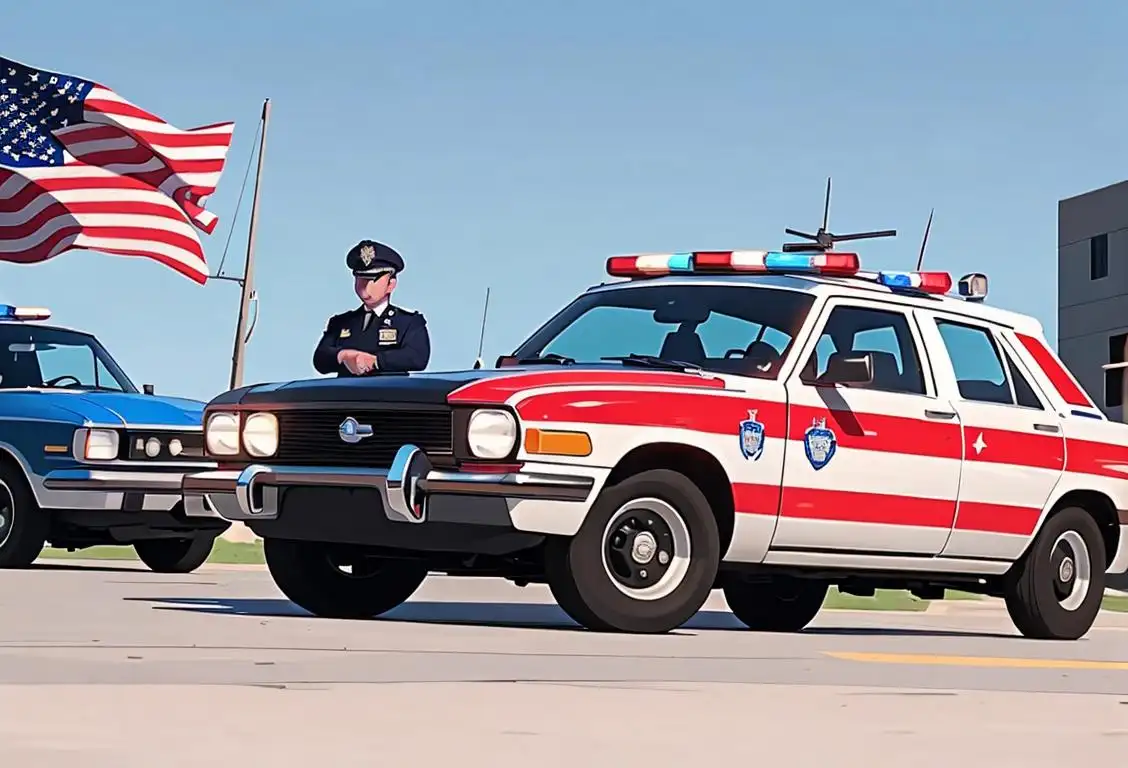National Camera Day

Ever wondered how we'd capture moments without the invention of the camera? 'Click,' and we have a memory immortalized. That's it, folks, it's time to focus, smile and say 'cheese' as we are strolling down the flash-filled alley of National Camera Day! So, put your best face (or pose) forward and let's zoom into the details.
When is Camera Day?
It's national camera day on the 29th June.
Lights! Camera! Action!
The digital world is agog with #NationalCameraDay every June 29th. With our handy device, we detected 6710 mentions online, peaking on June 29th, 2020. This is no surprise as the camera has become a constant companion in our pocket, capturing slices of reality that narrate our personal journeys and stories.
Through the Lens of Time
Ironically, we don't have a clear picture of the origin of National Camera Day. It's as if it just appeared out of the darkroom one day! But what we do know is that this day is about paying homage to the device that has revolutionized how we perceive the world. From the first camera obscura to today's smart-phone cameras, it's been quite a roll!
On a Lighter Shutter....I mean, Note
One fun tradition people follow is trying to take pictures with the oldest camera they can find. So, dust off your granddad's old Polaroid or the antique Kodak folding camera and let the fun begin! Remember, every click is a tick in the timeline of your cherished memory.
Giving Life to Images
Whether you're an amateur or a seasoned pro, National Camera Day encourages us to artfully invest in the act of seeing and capturing. It's a subtle reminder to bring out the hidden photographer in each one of us and immortalize moments that tell our stories. So go ahead, focus on the beauty and facades of life, because sometimes, memories blur faster than the moments themselves.
History behind the term 'Camera'
1021
The Invention of the Camera Obscura
In 1021, an Iraqi scientist named Alhazen invented the camera obscura. The term 'camera' comes from the Latin word meaning 'vaulted chamber' or 'room'. The camera obscura was a darkened room or box with a small hole on one side. Light passing through the hole created an upside-down image on the opposite wall or surface. This early device formed the foundation for the development of cameras.
1800
Thomas Wedgwood's Photographic Experiments
In 1800, Thomas Wedgwood made significant contributions to the development of photography. He experimented with using light-sensitive chemicals to capture images on surfaces like leather or paper treated with silver nitrate. While his process was not permanent and images faded over time, it marked an important milestone in the evolution of the camera.
1839
Daguerreotype: The First Practical Photographic Process
In 1839, Louis-Jacques-Mandé Daguerre introduced the daguerreotype, the first practical photographic process. This marked a major breakthrough in photography and catapulted the camera's popularity. The term 'camera' was still primarily associated with the darkened room or box used to create images until this point.
1888
George Eastman Introduces the Kodak Camera
In 1888, George Eastman introduced the Kodak camera, revolutionizing photography for the masses. The Kodak camera was a handheld box camera that came with a pre-loaded roll of film. After capturing the images, the entire camera was sent back to the Kodak company for film processing and reloading. This simplified photography and made it more accessible to the general public.
1900
Introduction of Flexible Roll Film
In 1900, flexible roll film was introduced, replacing the previous use of glass plate negatives. This advancement made cameras more compact and portable, paving the way for the development of smaller, handheld cameras that could be easily carried by photographers. The use of roll film also allowed for multiple exposures without the need to reload after every shot.
1948
The Invention of the Polaroid Land Camera
In 1948, Edwin H. Land introduced the Polaroid Land Camera, which produced instant photographs. The Polaroid camera incorporated a self-developing film that allowed users to see the photo within minutes of taking it. This groundbreaking invention eliminated the need for traditional film processing, making photography even more immediate and convenient.
1990s
Digital Revolution: Rise of Digital Cameras
During the 1990s, digital cameras became increasingly popular and accessible to the general public. The use of electronic sensors to capture and store images revolutionized the world of photography. The term 'camera' now extended beyond the physical device itself to encompass the concept of digital imaging.
Did you know?
Did you know that the first digital camera sold in the U.S., the Dycam Model 1, was originally marketed as a 'Logitech Fotoman?' That's right, it was in 1992 and it could only store 32 black-and-white images. Talk about vintage chic!Tagged
awareness fun remembrance history creativity moments photography cameraFirst identified
17th June 2015Most mentioned on
29th June 2020Total mentions
6710Other days
Camera Day
Former Prisoner Of War Recognition Day
Parents Day
Police Day
Prisoners Of War Remembrance Day
Farmers Day
Foundation Day
Liberation Day
Teacher Appreciation Day
Memorial Day








